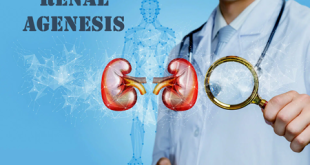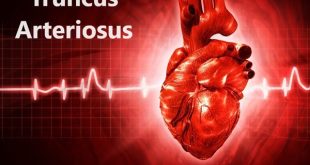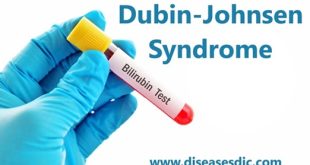Definition of Bladder Exstrophy Bladder exstrophy is a rare congenital condition that affects the development of the urinary system. In individuals with bladder exstrophy, the bladder fails to properly form and close during fetal development, leading to a malformation where the bladder is exposed and located outside the abdominal wall. …
Read More »Renal Agenesis – Types, Causes and Treatment
Definition Renal agenesis is a congenital condition characterized by the absence of one or both kidneys at birth. The kidneys play a crucial role in filtering waste and excess fluids from the blood to form urine. The affected individual is born with either one kidney (unilateral renal agenesis) or no …
Read More »Familial Mediterranean Fever (FMF) – Symptoms, and Treatment
What is Familial Mediterranean Fever? Familial Mediterranean Fever (FMF) is a rare genetic autoinflammatory disorder characterized by recurrent, self-limiting episodes of fever and inflammation affecting the serous membranes, which line the body cavities such as the lining of the abdomen, chest, and joints. FMF is primarily associated with populations originating …
Read More »Hypospadias – Types, Risk Factors and Complications
Overview Hypospadias is a congenital defect noted in boys. The location of the meatus (outlet for urine on the penis) is located on the undersurface of the penis rather than on the tip of the penis. Most often this is noted at the time of birth. The foreskin does not …
Read More »Sheehan’s Syndrome – Overview, Risk Factors and Treatment
Overview Sheehan’s Syndrome, also known as postpartum hypopituitarism or postpartum pituitary insufficiency, can occur in women experiencing severe uterine hemorrhage or exceptionally low blood pressure during childbirth. The significant blood loss and subsequent reduced oxygen flow to the pituitary gland, caused by the hemorrhage, result in tissue death within the …
Read More »Truncus Arteriosus – Types, Causes and Prevention
What is Truncus Arteriosus? Truncus arteriosus is a congenital heart defect characterized by the improper development of the embryonic heart during fetal growth. In a normal heart, the aorta and pulmonary artery are separate vessels that carry oxygenated and deoxygenated blood, respectively. However, in individuals with truncus arteriosus, there is …
Read More »Dubin Johnson Syndrome (DJS) – Overview and Causes
Overview of Dubin Johnson Syndrome Dubin Johnson Syndrome (DJS) stands as a rare and benign chronic condition affecting bilirubin metabolism. It is distinguished by conjugated hyperbilirubinemia, a liver exhibiting dark pigmentation, and the occurrence of anomalous pigment in hepatic parenchymal cells. The initial documentation of DJS dates back to 1954 …
Read More »Burners and Stingers – Causes, Classifications and Treatment
Definition Burners and stingers are a term commonly used in sports, particularly contact sports like American football, rugby, and wrestling. It refers to a temporary and usually intense burning or stinging sensation that athletes experience after a forceful impact or collision, typically involving the head, neck, or shoulder region. The …
Read More » Diseases Treatments Dictionary This is complete solution to read all diseases treatments Which covers Prevention, Causes, Symptoms, Medical Terms, Drugs, Prescription, Natural Remedies with cures and Treatments. Most of the common diseases were listed in names, split with categories.
Diseases Treatments Dictionary This is complete solution to read all diseases treatments Which covers Prevention, Causes, Symptoms, Medical Terms, Drugs, Prescription, Natural Remedies with cures and Treatments. Most of the common diseases were listed in names, split with categories.








